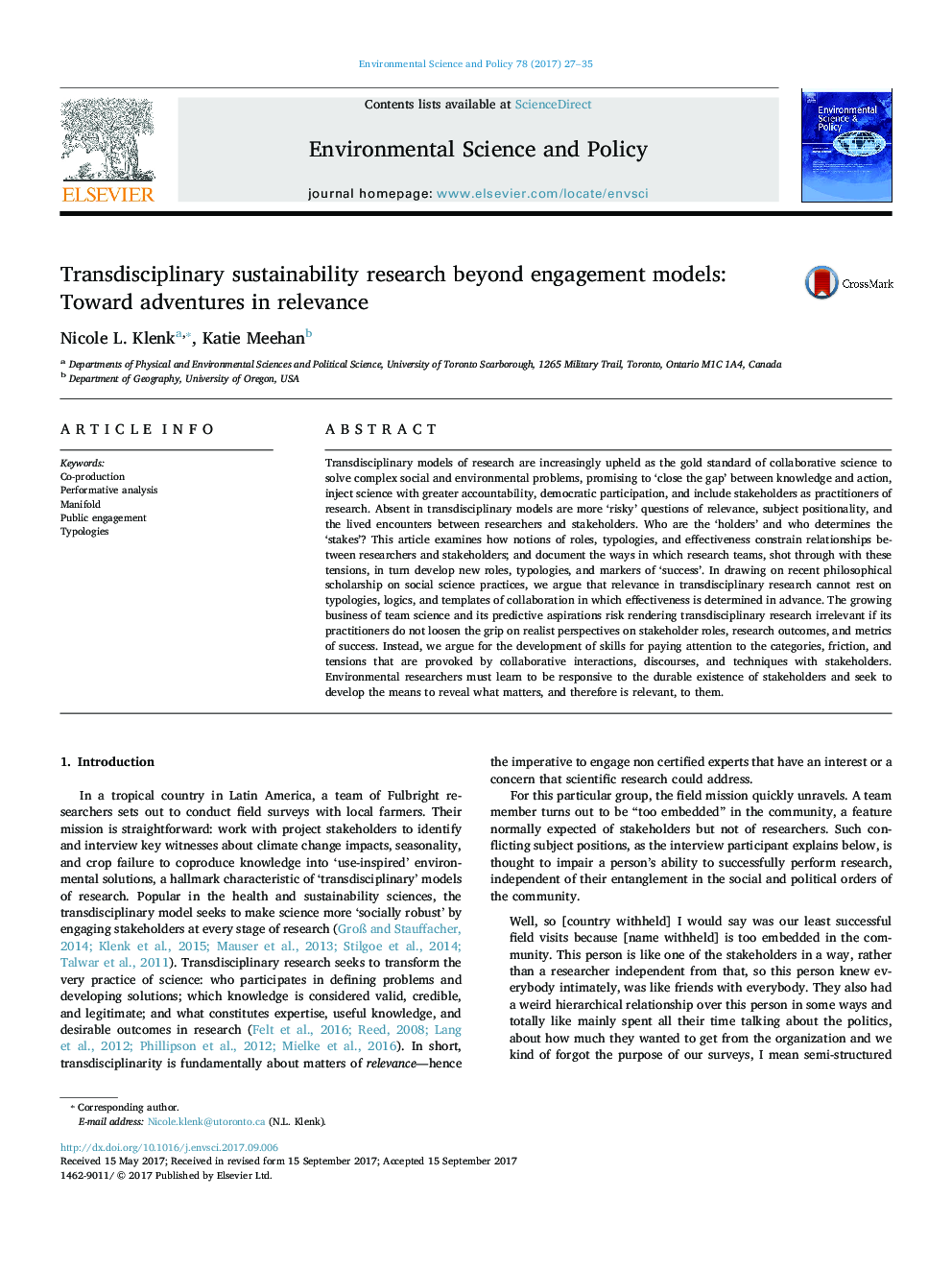| Article ID | Journal | Published Year | Pages | File Type |
|---|---|---|---|---|
| 5115677 | Environmental Science & Policy | 2017 | 9 Pages |
â¢Transdisciplinary (TD) research is a skilled relational practice.â¢When does and doesn't TD research produce relevant research depends on the encounters between researchers and stakeholders.â¢Conditions of success of TD research projects cannot be known in advance.â¢The notion of 'encounters' is helpful in redirecting our attention to the potential for risk, novelty, and relevance in TD research.
Transdisciplinary models of research are increasingly upheld as the gold standard of collaborative science to solve complex social and environmental problems, promising to 'close the gap' between knowledge and action, inject science with greater accountability, democratic participation, and include stakeholders as practitioners of research. Absent in transdisciplinary models are more 'risky' questions of relevance, subject positionality, and the lived encounters between researchers and stakeholders. Who are the 'holders' and who determines the 'stakes'? This article examines how notions of roles, typologies, and effectiveness constrain relationships between researchers and stakeholders; and document the ways in which research teams, shot through with these tensions, in turn develop new roles, typologies, and markers of 'success'. In drawing on recent philosophical scholarship on social science practices, we argue that relevance in transdisciplinary research cannot rest on typologies, logics, and templates of collaboration in which effectiveness is determined in advance. The growing business of team science and its predictive aspirations risk rendering transdisciplinary research irrelevant if its practitioners do not loosen the grip on realist perspectives on stakeholder roles, research outcomes, and metrics of success. Instead, we argue for the development of skills for paying attention to the categories, friction, and tensions that are provoked by collaborative interactions, discourses, and techniques with stakeholders. Environmental researchers must learn to be responsive to the durable existence of stakeholders and seek to develop the means to reveal what matters, and therefore is relevant, to them.
